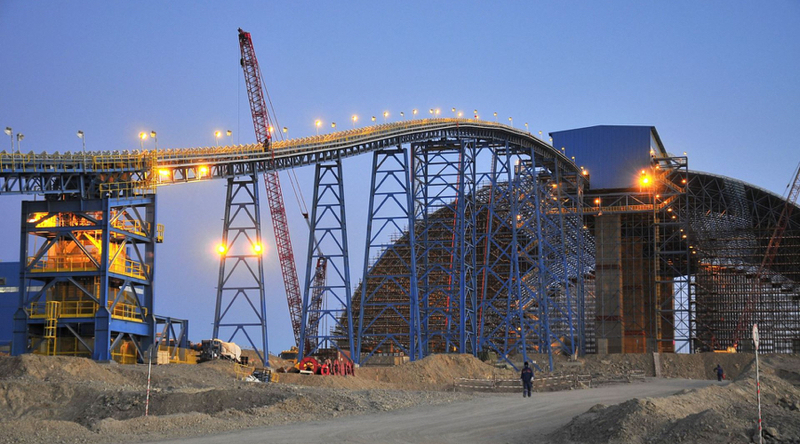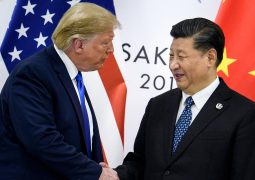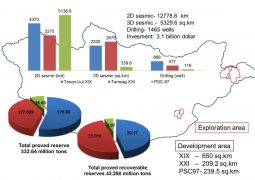Turquoise Hill suspends Mongolia mine shipments to China

Turquoise Hill Resources Ltd said on Friday it has suspended concentrate shipments from its giant copper-gold Oyu Tolgoi mine in Mongolia across the Chinese border, blaming problems with a crossing route.
Vancouver-based Turquoise Hill said it suspended shipments effective Thursday, after a new requirement at the Chinese-Mongolian border to use one joint coal and concentrate route created “unreasonably” long waits to cross the border along with safety and security concerns.
The company, whose shares fell 2.5 percent to C$4.34 in early trade on Friday, said in a statement it was unclear how long the suspension would continue and it was trying to clarify the matter with Mongolian and Chinese authorities, Reuters reported.
Turquoise Hill was not immediately available for comment.
In 2016, the south Gobi desert mine is forecast to produce 175,000 to 195,000 tonnes of copper in concentrates and 255,000 to 285,000 ounces of gold in concentrates, the company said in early November.
RBC Capital Markets analyst Fraser Phillips said in a note to clients that the suspension was a negative.
It comes one day after new fees were levied on commodity shipments between Mongolia and China, following a diplomatic row sparked by last week’s visit of Tibetan spiritual leader, the Dalai Lama, to Ulaanbaatar.
The Dalai Lama is cherished as a spiritual leader in predominantly Buddhist Mongolia, but China regards him as a dangerous separatist and warned the visit could damage bilateral relations.
Rio Tinto Plc’s majority-owned Turquoise Hill has a 66 percent stake in the mine, with the Mongolian government holding the remainder. Rio Tinto operates Oyu Tolgoi.
In June, Rio gave the go-ahead for a $5.3 billion underground expansion of the mine, with first production expected in 2020. When fully ramped in 2027, copper output is forecast at more than 500,000 tonnes annually.
- Previous South Koreans march close to presidential Blue House demanding Park resign
- Next Kazakhstan, Russia discuss future of Baikonur cosmodrome
















